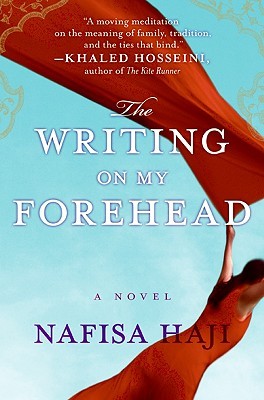When I was a tween, I visited my aunt and her family in Hyderabad, Pakistan. She had heard from my parents that I had become agnostic, and, as someone who had survived a lot of hardship by clinging to an intimate, present sense of God in her own life, she wanted the same for me.
She caught a beetle in the courtyard, showed me how the markings on its back looked as if they had been hand-painted. “See,” she argued, “this is where you find God.” I was touched, but unmoved.
I asked her what our religion required of us. She recited the catechism of mandatory acts: the statement of faith, fasting, charity, pilgrimage (if one can afford it), and prayer. I had seen her fast, give more than she could in charity, and knew she had made pilgrimage in her heart long ago, if not in the physical sense. I knew that the statement of faith was as regular for her as breath. But I hadn’t seen her pray.
My aunt is a woman who wakes before the rest of the household. She does every measure of the work that needs to be done, herself, thoroughly, sharing that work only to give someone with marginally less means than she has a wage. It’s hard to describe what her life was at the time I was visiting because it included none of the convenience of American urban life, and none of the spaciousness of suburban or rural life. In those years, there were often 23-hour curfews from the political unrest in southern Pakistan, so within very tight constraints and resources, she just worked, as a woman in a large extended Pakistani family does. Every drop of drinking water had to be boiled. Baths with a cup from a bucket also required heated water, every meal cooked from scratch, dust from the city streets with its animal carts and rickshaws cleaned from every crevice every day.
I had never seen her pause to pray. So I, a suburban American kid, asked her why she didn’t pray the five obligatory prayers. And she said, because I work. But she said it in Sindhi, where the word for work is more frequently translated as ‘duty.’ She was making an equivalence between prayer and duty. At the time, I thought it was hypocrisy. I thought prayer and duty were separate, that one was ethereal and ecstatic, and the other was the mundane, crusty stuff of the world. But I was wrong.
Her labor was a constant surrender, a constant erasure of the self to serve.
It turns out I was not so unlike my aunt. I was always, even at my most agnostic, drawn to service. Intense service, as many hours of it as I could get some years. I found it kept me sane. I also found my way back to the prayer mat, and persevered when five daily prayers started to feel rote. Oddly, it was submitting to the duty of prayer that centered me, that anchored my life. It was only after years of prayer as a duty, that I experienced anything more.
Now, with a family of my own, with challenges of its own, I am often the resource person, the one who jumps in to fix something, install something, clean something, figure out a medical issue, learn how to cook gluten free, dairy free, non-acidic food when a kid develops a mystery ailment. All of that on top of whatever I am doing for a living, law or writing. It was a lot of work before lockdown, and now, with homeschool, it’s more. Taking time for prayer feels like luxury, as I think it probably did to my aunt.
Her labor was a constant surrender, a constant erasure of the self to serve. And she did it without resentment; a posture I understand now is only possible if service is consecrated not to other people, but in Grace.
We have forgotten how to do what needs to be done, patiently and quietly, over and over again. We’ve forgotten duty.
In the modern world, we are taught that we’re above all of that. That our individualism is essential, that the anecdotes of our own experience should guide our thinking and our actions. So, we don’t, and our communities don’t, prioritize being good citizens.
We’re also taught that duty is drudgery, and that success means being served, not being of service. We have a quickly eroding respect for expertise and scholarship and the wisdom of age. It’s not only selfish, it leans heavily towards chaos.
I wonder sometimes if this isn’t the missing glue from American national politics: not a specific prayer or faith, but an honest respect for duty to something bigger than oneself, whatever you might call it. I wonder if this is why so many Americans, including Muslims, seem to chafe at being asked to take simple steps to keep each other safe. We have forgotten how to do what needs to be done, patiently and quietly, over and over again. We’ve forgotten duty.
This Ramadan that means staying at home and skipping the iftar gatherings. Stepping off the sidewalk to keep a distance. Working with teachers to help the children get through it. Helping neighbors. Supporting front line workers- demanding better pay and working conditions, unions, proper PPE. It’s grunt work. It’s not sexy. It’s duty and it’s service. It’s the most beautiful of prayers.
Sofia Ali-Khan is author of the book, A Good Country: My Life in Thirteen Towns and the Battle for a White America, forthcoming from Penguin Random House in 2021.






Hi, admin amazing info Thanks for sharing good work keep it up.